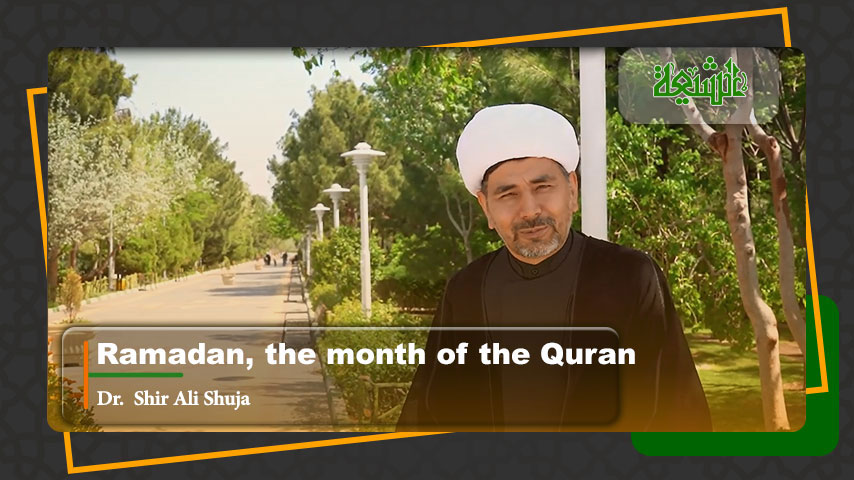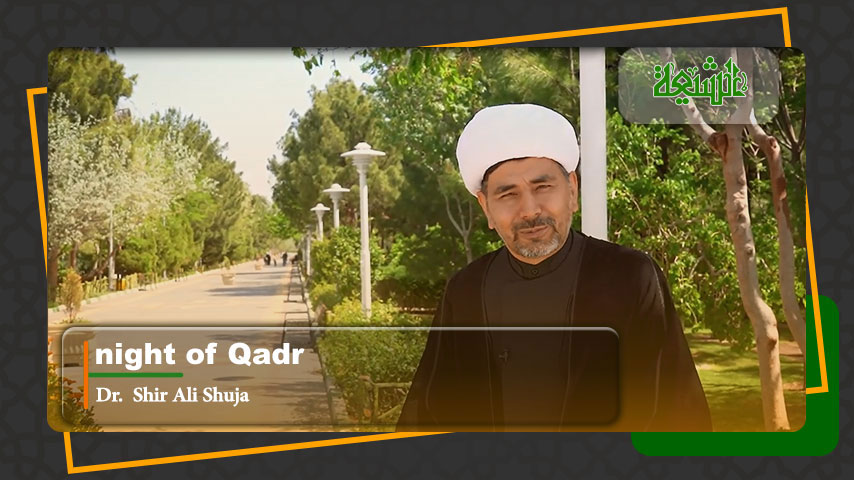In continuation of the discussion on the article titled “The Attributes of a Real Shia Muslim Based on Narrations”, we shall point out some other attributes based on narrations here.
(35) Imam Ali (a) describes the God-fearing
From Imam Sadiq (a) that his father (a) Said: A companion of Amir ul-Mu’minin called Homam who was a man devoted to worship said to him, O Amir ul-Mu’minin, describe to me the pious men in such a way as though I see them. Amir ul-Mu’minin (a) avoided the reply and said: O Homam, fear Allah and perform good acts because verily, Allah is with those who guard (themselves against evil) and those who do good (to others) (16:128).
Homam was not satisfied with this; therefore, he said, O Amir ul-Mu’minin, I implore to you by the One Who honoured you as He gave you some merits exclusively and favoured you as He endowed you with special gifts. Describe the pious man to me. Hence, he pushed Amir ul-Mu’minin to speak.
Thereupon, Amir ul-Mu’minin stood up, praised Allah, extolled Him, sought His blessings on the holy Prophet, and then spoke: Now then, Allah, the Glorified Sublime, created (the things of) creation. He created them without any need for their obedience or being safe from their sinning because the sin of anyone who sins does not harm Him nor does the obedience of anyone who obeys Him benefit Him. He has distributed among them their livelihood and has assigned them their positions in the world.
Allah caused Adam and Eve (a) to descend from Paradise as punishment for them since they broke His orders and breached his instruction.
Thus, the God-fearing, in this world, are the people of distinction. Their speech is to the point, their dress is moderate and their gait is humble. They submit to Allah the Sublime and so, therefore, they are astonished. They keep their eyes closed to what Allah has made unlawful for them, and they put their ears to that knowledge which is beneficial to them. They remain in the time of trials as though they remain in comfort because they satisfy themselves with the acts of Allah. If there had not been fixed periods (of life) ordained for each, their spirits would not have remained in their bodies even for the twinkling of an eye because of (their) eagerness for the reward and fear of chastisement. The greatness of the Creator is seated in their heart, and so, everything else appears small in their eyes.
Thus, to them, Paradise is as though they see it and are enjoying its favours. To them, Hell is also as if they see it and are suffering punishment in it. Their hearts are grieved, evils are not expected from them, their bodies are thin, their needs are scanty, their souls are chaste, and the supplies that they take from this world are great. They endured (hardship) for a short while, and, in consequence, they secured comfort for a long time. It is a beneficial transaction that the All-generous Lord made easy for them. The world aimed at them, but they did not aim at it. It captured them, but they freed themselves from it.
During the night, they are upstanding on their feet reading portions of the Quran and reciting it in a well-measured way, creating through it grief for themselves, bearing good tidings for themselves, stirring their sorrows for their sins, and seeking by it the cure for their ailments. When they come across a Verse, which contains fear (of Hell), they bend the ears of their hearts towards it and feel as though the sound of Hell and its cries are reaching their ears. When they come across a Verse creating eagerness (for Paradise), they pursue it avidly, and their spirits turn towards it eagerly, and they feel as if it is in front of them. They bend themselves from their backs, glorify Allah the Sublime the Omnipotent, and prostrate themselves on their foreheads, their palms, their toes, and their knees. Their tears are flowing down their cheeks. They pray ardently to Allah for releasing them (from Hell).
During the day, they are enduring, learned, virtuous and God-fearing. Fear (of Allah) has made them thin like arrows. If anyone looks at them, he believes they are sick, although they are not sick, and he says that they have gone mad. In fact, great concern (i.e., fear) has made them mad. If they ponder over the greatness and absolute power of Allah, along with the mention of death and the terrors of the Day of Resurrection that affects them deeply, their hearts become frightened, their minds agitated, and their mentalities astonished. If they wake up, they take the initiative to do pure acts for Allah. They are not satisfied with their meagre good acts and do not regard their major acts as great. They always blame themselves and are afraid of their deeds.
When anyone of them is spoken of highly, he says: I know myself better than others do, and my Lord knows me better than I know. O Allah does not blame me for what they say, and make me better than what they think of me and forgive me (those shortcomings) which they do not know. You are surely the knower of the things unseen and the coverer of the defects.
The peculiarity of any one of them is that you will see that he has strength in religion, determination along with leniency, faith with conviction, eagerness in (seeking) knowledge, understanding along with comprehension, knowledge along with clemency, gain along with lenience, kindness along with almsgiving, moderation in riches, devotion in worship, sufferance in starvation, endurance in hardship, mercy for the efforts, rightful giving, lenience in seeking earnings, desire for the lawful, pleasure in guidance, hatred from greed, piety with straightforwardness, and uninterested in appetite.
He is not deceived by the praise of the ignorant and does not forget to evaluate his past deeds. He regards all his acts as slow.
He performs virtuous deeds but still feels afraid. In the evening, he is anxious to offer thanks (to Allah). In the morning, his anxiety is to remember (Allah). He passes the night in fear and rises in the morning in joy and fear lest night is passed in forgetfulness, and joy over the favour and mercy received by him. If the self refuses to endure a thing, which it does not like, he does not grant its request towards what it likes. His delight lies in that which will remain forever and last long. The coolness of his eye lies in what is to last forever. His desire lies in that which will continue, while from the things (of this world) that will not last, he keeps aloof. He transfuses knowledge with forbearance, and speech with action.
You will see his laziness remote, his activity ceaseless, his hopes simple, his shortcomings few, his expectation is the coming of death, his heart fearing, his reference is to his Lord, his fear is of his sin, his spirit contented, his ignorance absent, his affairs easy, his religion safe, his desires dead, his rage suppressed, his manners pure, his neighbour secured, his pride weak, his steadfastness strong, reference to Allah very frequent, and his matters decisive.
He does not divulge that which the friends ask to keep secret and does not conceal a testimony for the enemies. He does not act any deed out of showing off and does not neglect acting it out of prudency. Good alone is expected from him. Evil from him is not to be feared. Even if he is found among those who forget (Allah), he is counted among those who remember (Him), but if he is among those who remember (Allah), he is not counted among the forgetful.
He forgives him who is unjust to him, he gives to him who deprives him, and he behaves well with him who behaves ill with him. His forbearance is never absent and he does not hurry up in matters that he suspects. He overlooks him whose fault is shown to him. Indecent speech is far from him, his utterance is lenient, his evils are non-existent, his virtues are ever present, his speech is truthful, his deeds are good, his good is ahead, and mischief has turned its face (from him). He is dignified during calamities, patient in distress, and thankful during ease. He does not commit excess over him whom he hates and does not commit sin for the sake of him whom he loves. He does not claim of possessing that which is not his and does not deny the right that is incumbent upon him. He admits the truth before evidence is brought against him. He does not misappropriate what is placed in his custody and does not forget what he is required to remember. He does not call others bad names, he does not oppress anybody, he does not take the initiative in envy, he does not cause harm to his neighbour, and he does not feel happy at others’ misfortunes.
He hurries to offer the prayers, keeps the trust that is deposited with him so honestly, slows down in acting the evil deeds, enjoins good, forbids evil, does not engage himself in matters ignorantly, and does not go out of the right out of his failure. If he is silent, his silence does not grieve him. If he speaks, he does not err. If he laughs, he does not raise his voice beyond his hearing.
He is satisfied with that which is decided for him. Rage does not cause him to exceed the limits, passion does not overcome him, and stinginess does not predominate him. He is not greedy for that which is not his. He associates with people so as to learn, keeps silent so as to save himself, puts questions so as to understand, and investigates so as to have knowledge. His silence is not purposed for making people wonder about him and his wording is not purposed for priding himself on others.
If he is wronged, he endures until Allah takes revenge on his behalf. His own self is in distress because of him, while the people are at ease with him. He puts himself in hardship for the sake of his next life and makes people feel safe from himself. His keeping away from others is by way of asceticism and purification, and his nearness to those to whom he is near is by way of leniency and mercifulness. His keeping away is not by way of vanity or feeling of greatness, nor is his nearness by way of deceit and cheating. He imitates the virtuous people who preceded him and is the leader of the pious people who will come after him.
It is related that Homam passed into a deep swoon and then expired. Then Amir ul-Mu’minin said: Verily, by Allah, I had this fear about him.
The Imam (a) ordered people to prepare Homam funeral ceremonies. He offered the Deceased Prayer on his body. Then he added: Effective advice produces such effects on receptive minds.
Someone said to him: O Amir ul-Mu’minin, how is it you do not receive such an effect? Amir ul-Mu’minin replied: Woe to you. For death, there is a fixed hour, which cannot be exceeded and a cause, which does not change. Now look, never repeat such talk, which the Shaitan had put on your tongue.
Continue on the next article http://The Attributes of a Real Shia Muslim Based on Narrations (4)
















